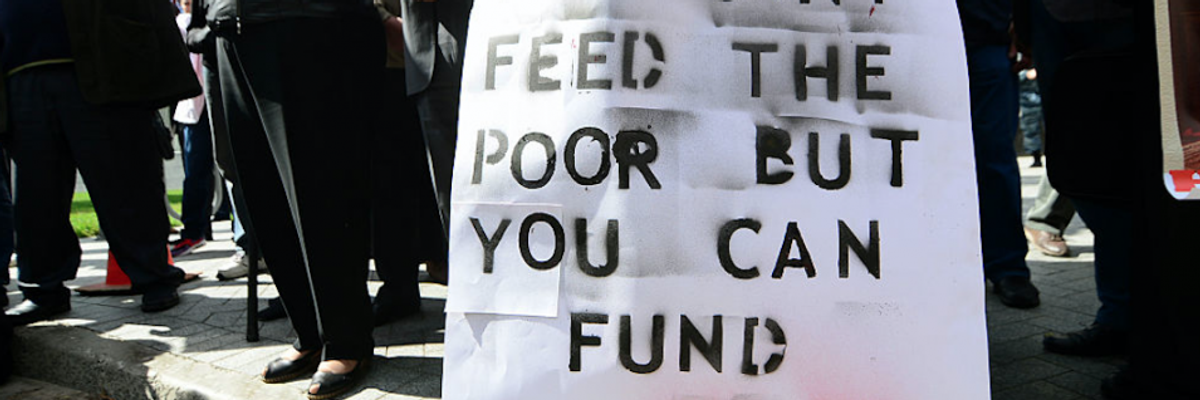

SUBSCRIBE TO OUR FREE NEWSLETTER
Daily news & progressive opinion—funded by the people, not the corporations—delivered straight to your inbox.
5
#000000
#FFFFFF
To donate by check, phone, or other method, see our More Ways to Give page.


Daily news & progressive opinion—funded by the people, not the corporations—delivered straight to your inbox.

The absence of war is not enough; we need to build a positive peace by supporting gender-equitable and locally-led peacebuilding, committing to multilateralism and international law, promoting green, justice-based development, and more. (Photo by NurPhoto/Corbis via Getty Images)
In lieu of the canceled presidential debate, Donald Trump and Joe Biden will take part in competing town halls at 8pm ET tonight. While presidential debates aren't exactly known for the depth of their foreign policy discourse to begin with, town halls typically avoid the topic altogether. So though we're unlikely to get much insight tonight, here are five key foreign policy issues that we at Win Without War wish we would find in the town halls--and how we should be talking about them.
Dear Common Dreams reader, The U.S. is on a fast track to authoritarianism like nothing I've ever seen. Meanwhile, corporate news outlets are utterly capitulating to Trump, twisting their coverage to avoid drawing his ire while lining up to stuff cash in his pockets. That's why I believe that Common Dreams is doing the best and most consequential reporting that we've ever done. Our small but mighty team is a progressive reporting powerhouse, covering the news every day that the corporate media never will. Our mission has always been simple: To inform. To inspire. And to ignite change for the common good. Now here's the key piece that I want all our readers to understand: None of this would be possible without your financial support. That's not just some fundraising cliche. It's the absolute and literal truth. We don't accept corporate advertising and never will. We don't have a paywall because we don't think people should be blocked from critical news based on their ability to pay. Everything we do is funded by the donations of readers like you. Will you donate now to help power the nonprofit, independent reporting of Common Dreams? Thank you for being a vital member of our community. Together, we can keep independent journalism alive when it’s needed most. - Craig Brown, Co-founder |
In lieu of the canceled presidential debate, Donald Trump and Joe Biden will take part in competing town halls at 8pm ET tonight. While presidential debates aren't exactly known for the depth of their foreign policy discourse to begin with, town halls typically avoid the topic altogether. So though we're unlikely to get much insight tonight, here are five key foreign policy issues that we at Win Without War wish we would find in the town halls--and how we should be talking about them.
In lieu of the canceled presidential debate, Donald Trump and Joe Biden will take part in competing town halls at 8pm ET tonight. While presidential debates aren't exactly known for the depth of their foreign policy discourse to begin with, town halls typically avoid the topic altogether. So though we're unlikely to get much insight tonight, here are five key foreign policy issues that we at Win Without War wish we would find in the town halls--and how we should be talking about them.